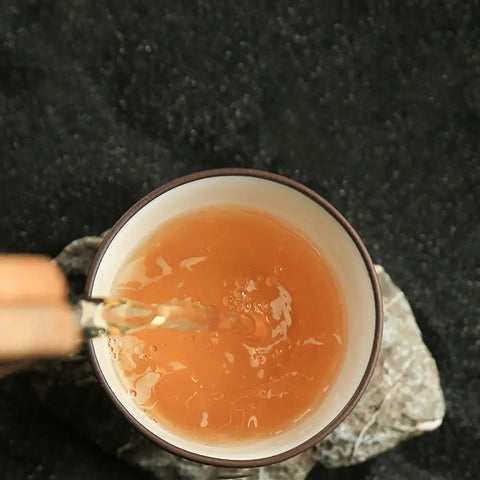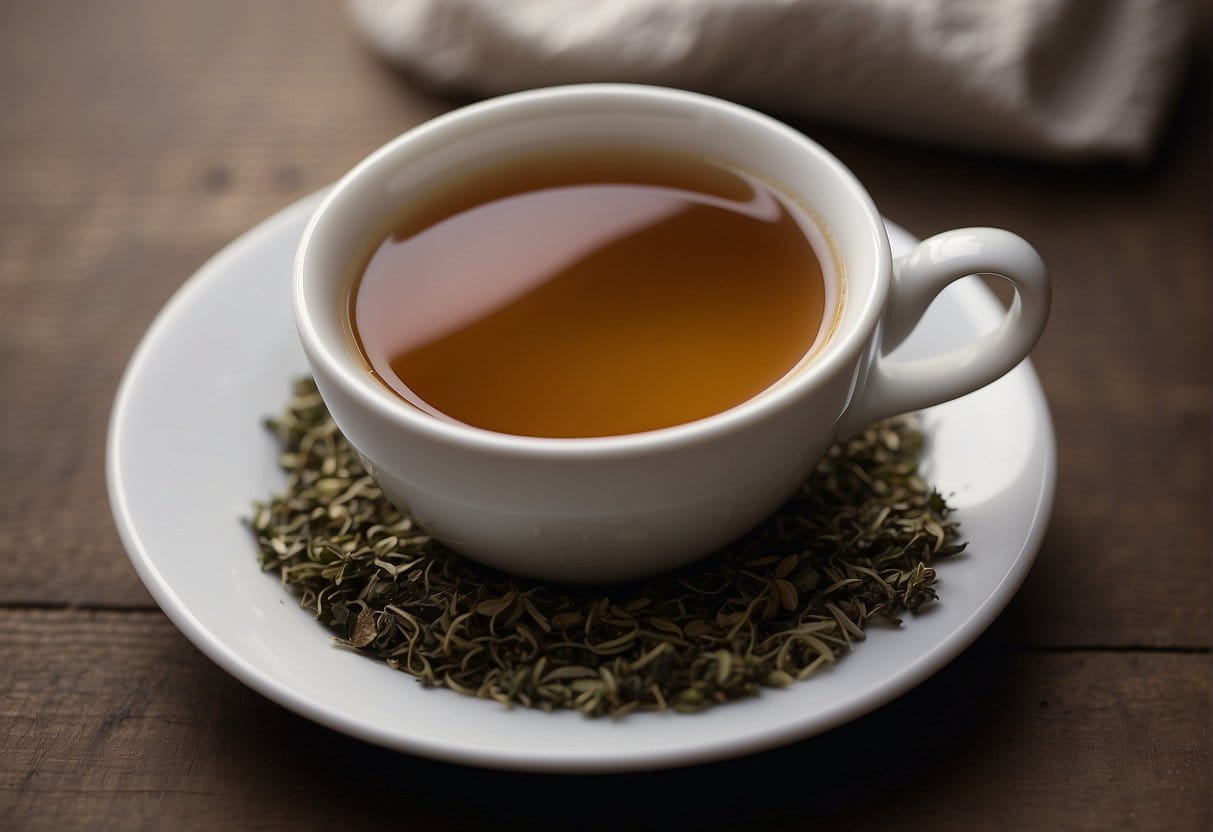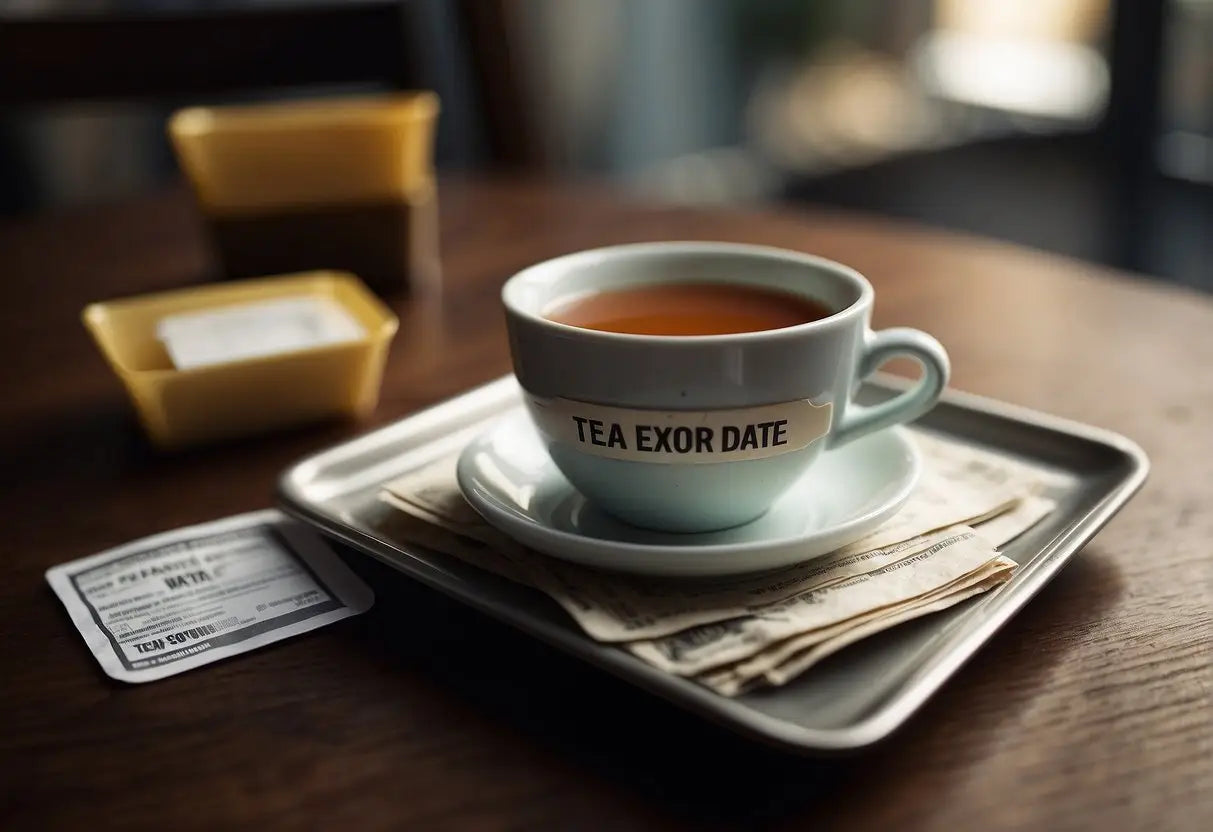What Happens If You Drink Expired Tea
Shop our Pu Erh Tea collections!
When you discover a box of tea that's past its expiration date, it's important to consider a few factors before brewing a cup. Expired tea doesn't necessarily mean it's harmful, but it might affect the flavor and potency.
Shelf Life: Most teas have a shelf life of about 18 to 24 months. However, this can vary depending on the type of tea and how it's stored.
Bestsellers
Storage: Your tea's longevity is significantly influenced by storage conditions. Keep it in a:
- Cool,
- Dry,
- Dark place,
- Away from strong odors.
Storing tea properly helps in maintaining its quality.
Tea Types:
- Black, green, white, and oolong teas often just lose flavor over time.
- Herbal teas might lose their intended therapeutic effects.
Here's a quick reference on what you might experience with expired teas:
| Tea Type | Likely Effect |
|---|---|
| Black | Duller flavor |
| Green | Less vibrant taste |
| Herbal | Diminished aroma and benefits |
| Oolong | Subtle taste changes |
Sensory Check: Before using expired tea, do a sensory check for:
- Odor: Musty or off smells are a red flag.
- Mold: Visible mold means the tea is not safe to consume.
- Taste: If the tea passes the smell test, taste a small amount. Lack of flavor or an unpleasant taste are signs it's time to replace your tea.
Remember, while expired tea is often still safe, it probably won't provide the best sensory experience.
Health Impacts

When you drink expired tea, your body may react in various ways depending on how the tea has changed over time. Here's what you need to consider about the health impacts:
Potential Risks
- Microbial Growth: Expired tea can harbor bacteria and molds, especially if it's been stored in a damp environment. Consuming such tea could cause foodborne illnesses with symptoms like stomach cramps, nausea, vomiting, or diarrhea.
- Loss of Nutritional Value: Over time, tea can lose its antioxidants and vitamins, diminishing the health benefits you might be seeking from your brew.
Food Safety Considerations
- Proper Storage: If you're storing tea, ensure it's in a cool, dry place to ward off moisture that could lead to spoilage.
- Expiry Date: Pay attention to the expiration date; it's a safe benchmark for consumption. Consuming beyond this date could pose risks.
Allergic Reactions
- Change in Content: An expired tea may change in its chemical makeup, which could increase your risk of an allergic reaction, particularly if you have a history of food allergies.
- Monitoring Symptoms: If you experience unexpected symptoms like itching, swelling, or difficulty breathing after consuming expired tea, seek medical advice immediately.
Quality and Potency
When consuming expired tea, the two primary concerns you might notice are a decrease in the tea's flavor and a diminishment in its nutritional value.
Effect on Flavor
Freshness Impacts Taste: As tea ages, the natural oils responsible for its flavor and aroma degrade. This degradation leads to a less vibrant and often stale taste. For instance, you might find that green tea loses its grassy notes, and black tea may no longer have its robust, malty character.
- Green Tea: Freshness is crucial for a vibrant flavor.
- Black Tea: Aged tea may taste muted compared to its fresh counterpart.
Loss of Nutritional Value
Nutrient Degradation Over Time: Tea contains various antioxidants, vitamins, and minerals, which can deteriorate over time. For example, the catechins in green tea, which are known for their health benefits, can reduce in potency when the tea is past its expiration date.
- Vitamin C: Delicate and can degrade, diminishing the tea's health benefits.
- Antioxidants: Important for their potential health benefits, yet less potent in expired tea.
Proper Storage Techniques
To ensure the longevity and freshness of your tea, follow these storage guidelines:
Lao Ban Zhang
-
Dry Storage: Keep your tea in a cool, dry place away from moisture. Moisture can lead to mold growth and negatively affect the tea's flavor.
-
Airtight Containers: Store your tea in an airtight container. Exposure to air can degrade the quality of the tea, leading to a loss of aroma and flavor.
-
Light Protection: Protect the tea from direct sunlight. UV rays can diminish the tea's color and lead to a stale taste. Consider using opaque storage containers to block light.
-
Temperature Regulation: Avoid storing your tea in places with fluctuating temperatures. Consistency is key to maintaining the tea's quality.
Here's a quick reference table for storage conditions:
| Factor | Ideal Condition |
|---|---|
| Humidity | Low |
| Container | Airtight, opaque |
| Light Exposure | Minimal |
| Temperature | Consistent, room temperature or below |
Remember, improper storage may not only impact the flavor and quality but also shorten the lifespan of your tea.
Signs of Spoilage

When assessing if your tea has spoiled, you should be aware of several indicators. It's essential to recognize these signs to ensure you are not consuming something that could be harmful or unpleasant.
-
Visual Changes: Look for any mold growth or discoloration. Loose leaves or tea bags that have changed color significantly may be a sign of spoilage.
-
Odor: A sour or otherwise off smell is a strong indicator that your tea should not be consumed. If the tea no longer has its characteristic aroma or smells musty, it's best to discard it.
-
Taste: If you decide to taste the tea, any flavors that are bitter or unusual compared to when it was fresh could indicate spoilage.
-
Texture: For brewed tea, any thick or syrupy consistency is not normal. For tea leaves, they should not be overly damp or sticky.
Keep in mind that these signs can occur with loose leaf teas and tea bags alike. Here's a quick reference:
| Aspect | Sign of Spoilage |
|---|---|
| Visual | Mold, discoloration |
| Odor | Off smell, mustiness |
| Taste | Bitterness, unusual flavor |
| Texture | Syrupy brew, damp or sticky leaves |
Expired tea may not necessarily be harmful, but these signs often indicate that the quality and flavor have deteriorated. If you notice any of these, it's best to err on the side of caution and avoid drinking the tea.
Safe Consumption Guidelines

When considering the consumption of expired tea, assess both the tea type and storage conditions. Proper storage is crucial in ensuring the maximum shelf life of the product before its quality deteriorates.
Dry tea leaves can last a long time if kept in a:
- Cool
- Dark
- Dry
- Airtight environment
Note: Loose leaf teas generally remain fresh longer than tea bags due to their larger surface area and lower exposure to oxygen.
Tea Bags have a shorter shelf life due to:
- Greater exposure to air
- Moisture
Always check for:
- Unusual odors: A stale or off smell is a clear indicator that the tea is past its prime.
- Discoloration or mold: Any change in color or visible mold growth means the tea is unsafe to consume.
- Taste: If the flavor is greatly diminished or has altered, it's best to avoid drinking the tea.
Remember, the expiration date is an indicator of quality, not safety. However, consuming tea that has significantly degraded in quality may not provide the intended flavor experience and, if contaminated, could pose a health risk.
Follow these guidelines to ensure your tea is enjoyable and safe to drink.
Frequently Asked Questions
Drinking expired tea may not always be harmful, but it can affect the flavor and potency. Understand the risks and signs of deteriorated tea through these common inquiries.
Can consuming expired tea bags lead to illness?
If your expired tea bags are free from mold and haven't been exposed to moisture, they're unlikely to cause illness. However, if they contain mold or have a strange odor, they may potentially lead to food-borne illnesses.
Are there any health risks associated with drinking expired green tea?
Expired green tea typically poses minimal health risks if it's been stored properly and shows no signs of contamination. The main concern would be a loss in flavor and reduced antioxidant levels.
What are the consequences of using tea bags that are several years old?
Tea bags several years past their expiration date may have a stale taste and decreased aroma. There's also a risk of diminished nutritional value and the potential for mold growth if they've been stored in a damp environment.
How can one identify if a tea bag has gone bad?
You can tell a tea bag has gone bad if it has a musty smell, discoloration, or if there is visible mold. Additionally, the flavor will often be much weaker than expected.
What is the shelf-life of tea bags once they have passed their expiration date?
Tea bags can last beyond their expiration date, sometimes up to a year or more if unopened and stored in a cool, dry place. Once opened, the shelf-life may decrease significantly due to exposure to air and moisture.
Does properly sealed tea have the same expiration considerations as opened tea?
Properly sealed tea has a longer shelf-life than opened tea. Exposure to air, moisture, and other contaminants accelerates the degradation process, so tea that remains sealed will generally last longer and maintain better quality.
← Older post Newer post →











